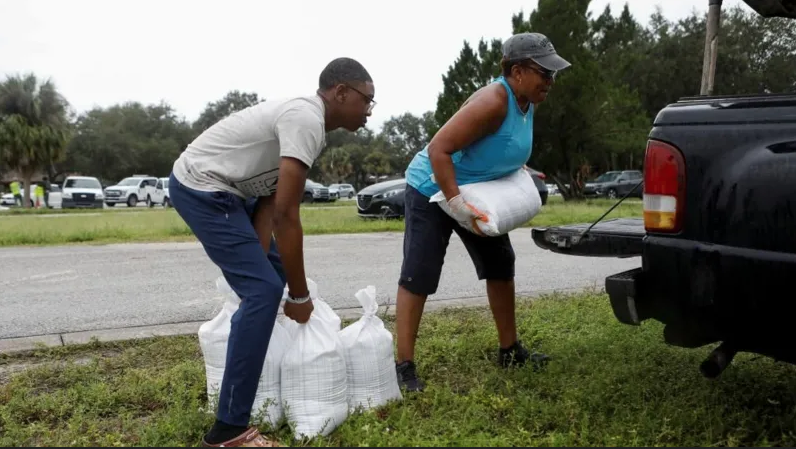Look Left, Look Right: What does ‘progressive’ mean in the coalition talks?
Written by on June 11, 2024
Why are the MK party and the Patriotic Alliance being described as ‘progressive’ or ‘left’ — when many of their policies are far right?
The ANC should shun the DA in favour of “progressive”, “left” parties.
This is one of the strongest narratives doing the rounds currently, during this critical period in which political parties are facing a ticking clock in terms of the time available to form a co-governance situation.
This messaging is everywhere on social media and is amplified by certain lobby groups and prominent individuals.
Former Cabinet minister Lindiwe Sisulu, for instance, has called on the ANC to create a “Black Pact of Progressive Forces”, by which she meant a partnership between the ANC and uMkhonto Wesizwe (MK), Economic Freedom Fighters (EFF), Inkatha Freedom Party (IFP) and the Patriotic Alliance (PA).
ANC insiders told News24, in the context of potential cooperation with MK and the EFF: “There are parties on the left and parties on the right. We cannot go to the parties on the right; we must go left.”
The Black Business Council sent a letter to ANC Secretary-General Fikile Mbalula describing a potential coalition between the ANC, EFF, IFP and MK as a “great victory for progressive politics”, while a potential coalition between the ANC, EFF and PA would be another “progressive option”.
The MK party, meanwhile, has repeatedly said that it will only partner with “other progressive parties”.
What do these terms mean?
Around the world, the terms “left” and “right” are becoming ever more nebulous and less useful, particularly with the rise of populists who often present a grab bag of policies: economically left but socially right, for instance.
But there are two parties in the current South African coalition talks which are repeatedly described as “progressive” or “left” when, in fact, their policies are anything but.
Those two parties are the Patriotic Alliance and the MK party.
The radical US socialist publication Jacobin, in its coverage of the 2024 elections, refers to the Patriotic Alliance as a “far-right nationalist party”.
The politics of the Patriotic Alliance would, indisputably, be classed as “far right” in most other places on Earth.
How else would one describe a party which refers to its desire to see South Africa “under the hand of a merciful God”; which “places God first”; and which wants to see “religious principles reintroduced to the education system”?
The PA says in its manifesto, quite literally, that it wants to “build a wall” to protect South Africa’s borders, and that it would establish “mass detention camps to which illegal foreigners must be taken”.
These are, needless to say, all talking points from the US far right.
The PA has previously mobilised its supporters to “patrol” the border between Zimbabwe and South Africa, and its campaign posters unabashedly bore the slogan “Abahambe” (“They must go”).
It would make military service compulsory for South Africa’s unemployed youth: an idea currently being very controversially floated by the UK’s Conservative Party — the key there is in the party name.
The PA would reinstate the apartheid-era death penalty, including for heads of government departments found guilty of corruption. It also advocates for the return of the inhumane apartheid-era practice of detention without trial. Its manifesto states that it would put suspected criminals “in jail first and then bring charges later” — an idea which, it notes, “will not sit well with many liberals”.
The PA specifies that its position on crime is modelled on the approach taken by El Salvador’s President Nayib Bukele, who is widely regarded as a dictator who has led his country into “the worst human rights crises since the country’s 1980-1992 civil war”, according to Amnesty International.
The PA and its leader, Gayton McKenzie, have adopted a far more openly supportive position on Israel than the DA, even though it is the latter party’s position which is being described as insufficiently progressive on foreign policy for the ANC.
McKenzie has denied that what is happening in Gaza is a genocide, referred to Hamas as a “terrorist organisation” and said: “There is not a Muslim that will tell me not to follow what the Bible tells me; never, not me! My Bible says if you curse Israel you curse yourself.”
MK party progressive? Hardly
Then there’s the MK party — which shares ideological space with the PA on a number of fronts.
Both parties want to elevate the status of unelected leaders: in the case of MK, by creating an “upper house” of Parliament consisting entirely of “indigenous kings and queens as well as other traditional leaders”. (It is hard to imagine a less left-wing policy than an insistence on entrenching the power and influence of monarchies.)
MK wants soldiers to patrol South Africa’s borders. Its leader, Jacob Zuma, promises that young men will be sent to compulsory “military camps”.
Zuma told an MK rally in February that if the party won a two-thirds majority, one of the laws the party intended to repeal would be the protection of same-sex marriages — and possibly even the protection of basic LGBT rights, since he asked: “Who made the law that a man can date another man?”
Progressive indeed.
On the campaign trail in February, Zuma repeated an idea he first floated in 2015 to the absolute horror of civil society: to exile pregnant teen moms to Robben Island. This proposal, he said, would finally be actioned under an MK government.
MK would repeal legislation outlawing corporal punishment in the home, Zuma said, dismissing “this law that says children should not be beaten”.
It is almost impossible to imagine more conservative policies than these — or policies, for that matter, more at odds with the ANC’s own.
Some have suggested that the term “progressive” is simply being used as a proxy for “black-led” when it comes to the other political parties in the electoral mix.
But this is clearly not the whole picture, either, since ActionSA — led by Herman Mashaba — is never referred to as “progressive” in the same way as the PA or MK.
Mashaba is unapologetically pro-capitalism. Is this ultimately what is being referred to: that “progressive” parties are anti-capitalist?
It is true that the MK party’s economic policies are far left, with nationalisation and land expropriation as its foundational pillars.
But this is not the case with the PA, which is positively libertarian on the economy. The party clearly states in its manifesto that it “promotes the free market system” and that “too much government interference in the free movement of goods and services in any society often results in outcomes that are harmful to society”.
The ANC is free to choose its coalition partners on the basis of whatever criteria it lands on. But to refer to MK and the PA as the ANC’s most suitable ideological bedfellows, in a multitude of ways, is nothing short of absurd.
The post Look Left, Look Right: What does ‘progressive’ mean in the coalition talks? appeared first on The Namibian.


